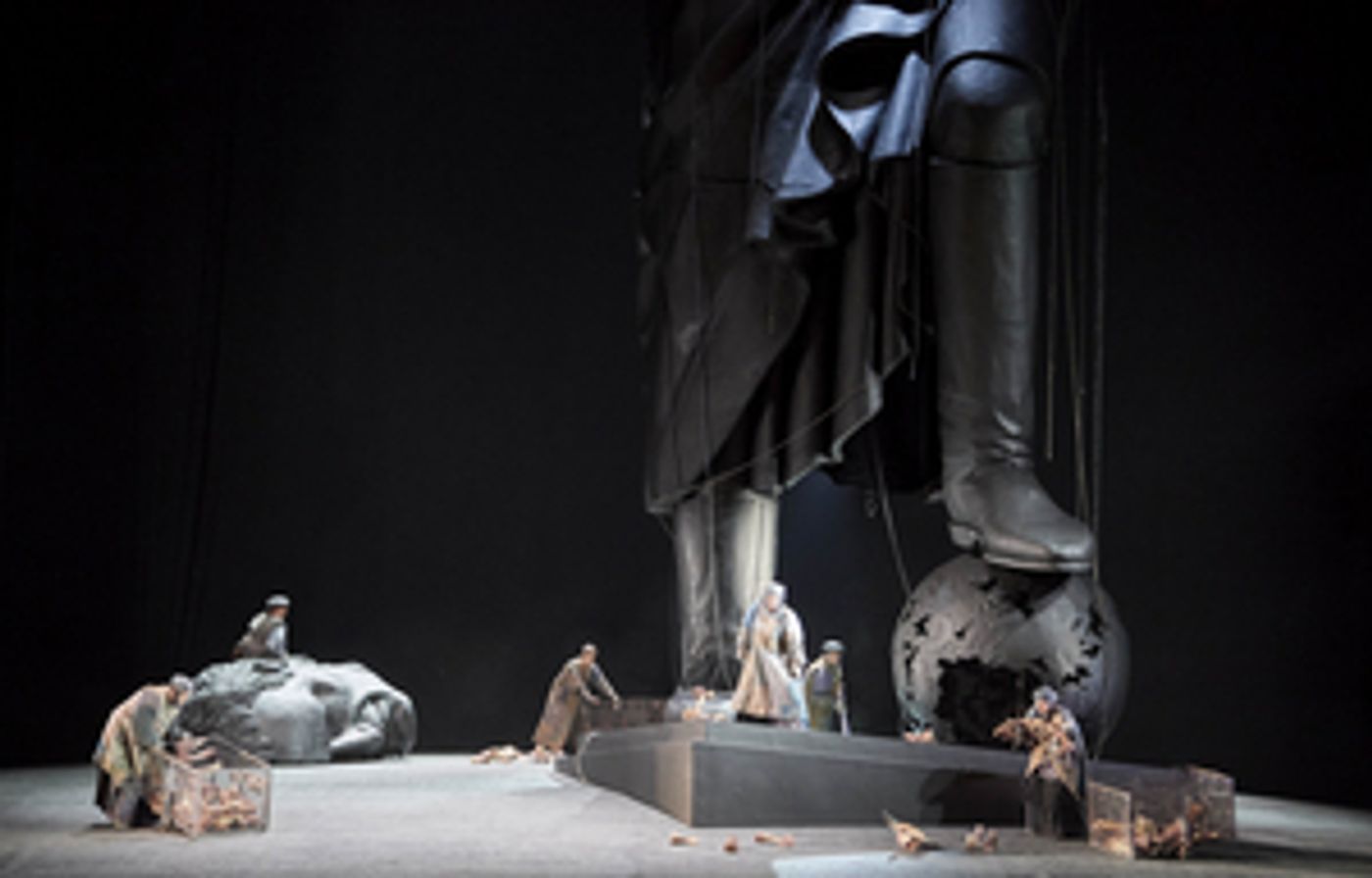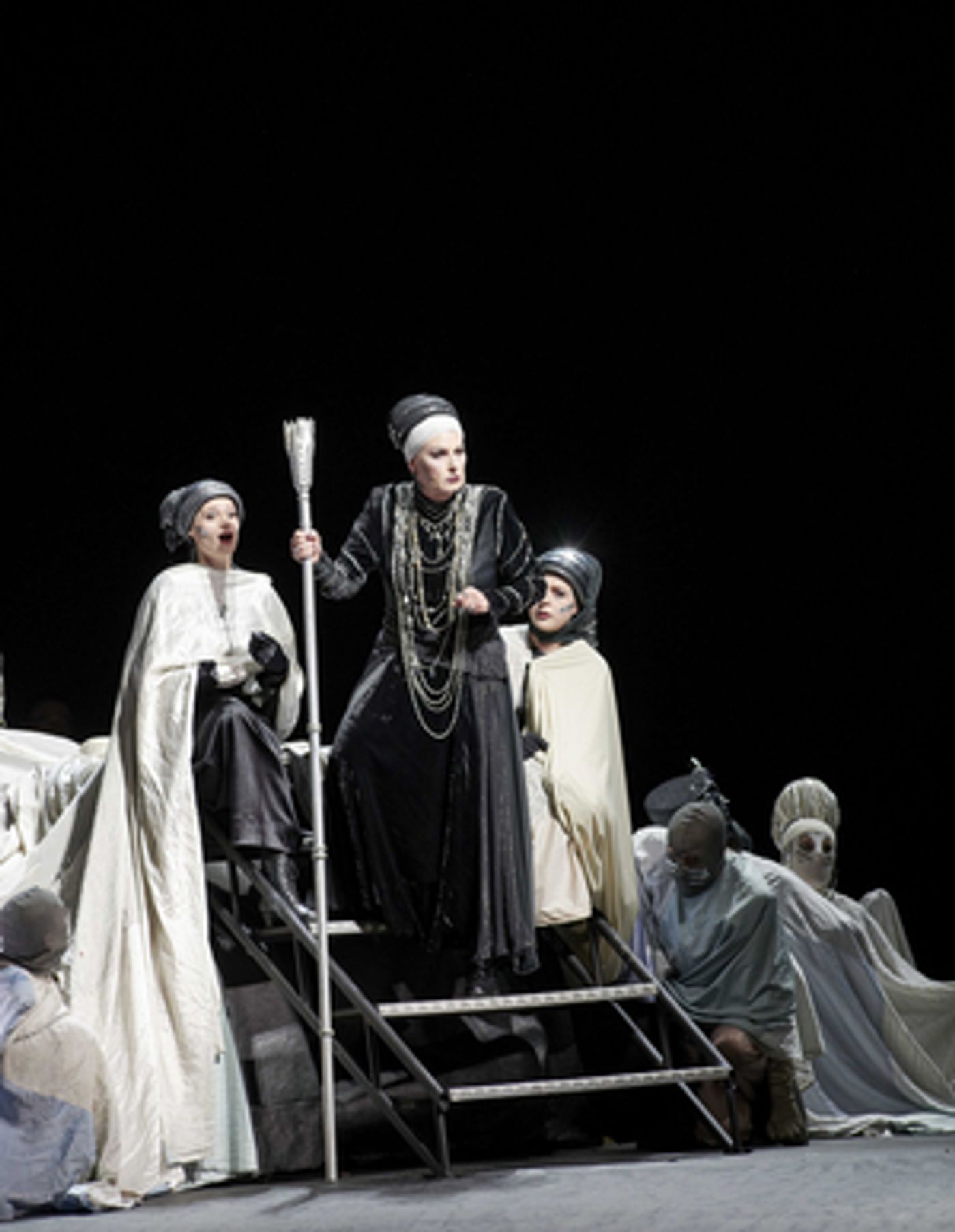Review: ELEKTRA, LIVE FROM VIENNA STAATSOPER at Home Computer Screens
Richard Strauss' Opera from the People who Know it Best.


On September 11, 2020, the Vienna State Opera streamed Hugo von Hofmannsthal and Richard Strauss's soul-searing one-act opera Elektra, live, to the computers of opera lovers around the world. Speaking in 1903, three years before Guglielmo Marconi made the public radio broadcast, von Hofmannsthal said, "We have to re-create the thrill of the myth." With the stage direction of Harry Kupfer, the conducting of Franz Welser-Möst, and the portrayal of the title role by Ricarda Merbeth, the thrill has only strengthened with time.
Online viewers see a partially-filled Vienna State Opera House that has patrons seated four seats from the nearest stranger. Standing room, once my frequent haunt, has become an area for numbered chairs. The orchestra and singers performed in a more usual manner, but their health is checked on a daily basis. Vienna operagoers, both online and in the house, have a choice of titles in English, German, French, Italian, Spanish, Japanese, Russian, or Chinese.
In Hoffmansthal's version of the Sophocles' play he utilizes some later theories that explain Elektra's constant mental focus on her father's murder. The shattered head of her father's huge statue holds sway in the upstage area and provides the level for Orest's eventual triumph. All of these characters are real people and no one of them is entirely blameless or entirely evil. Closeup cameras enable the online audience to see facial expressions that are lost in the theater, but the pristine sound of live voices surmounting a full orchestra in the opera house is never to be found elsewhere.
A tireless Elektra, Ricarda Merbeth paces herself well for this marathon role. She sang with polished solid mid-range tones and an easy top that could be heard through the waves of colorful Straussian sound emitted by Franz Welser-Möst's full orchestra. Her curse of Chrysothemis was not the most blood-curdling expletive I've yet heard, but more importantly, she is a once-loving daughter who has experienced the trauma of murder.
I first heard Doris Soffel as the Amme (Nurse) in Die Frau one Schatten at Los Angeles Opera in 2004. Her voice was perfect for the role and she seemed able to appear and disappear with a few puffs of smoke. Sixteen years later, at age 72, she still has a hefty, plum-colored sound and a svelte figure. Her Klytemnestra is a wonderfully malicious character whose voice surmounts Strauss' huge orchestra with authority. I hope Soffel will come back to LA. She is a treasure.
Although the sound of Camilla Nylund's voice is more lyric than those of Merbeth or Soffel, she balances lyrical beauty of tone with power that flows through the large orchestra. With a secure technique, she displays particularly glorious vocal freedom above the staff.
Derek Welton is a muscular, dramatic Orest who looks and sounds as though he could commit the desired mayhem. As Aegisth, Jörg Schneider creats a drinking buddy who never knows the degree to which his step-daughter hates him.
With the skill of a consummate conductor, Franz Welser-Möst leads the orchestra in a manner that permits the instrumentalists to shine in the purely orchestral passages and allows the singers not only to be heard but to create their characters and the emotions that move them with the colors in their voices. His rendition of the score is detailed, intense, and exemplary in its insight. I hope we will soon get to hear more of his operatic interpretations.
Photo (c) Vienna State Opera / Michael Pöhn
Ricarda Merbeth (Elektra)
Doris Soffel (Klytämnestra)
Camilla Nylund (Chrysothemis)
Derek Welton (Orest)
Reader Reviews
Videos

